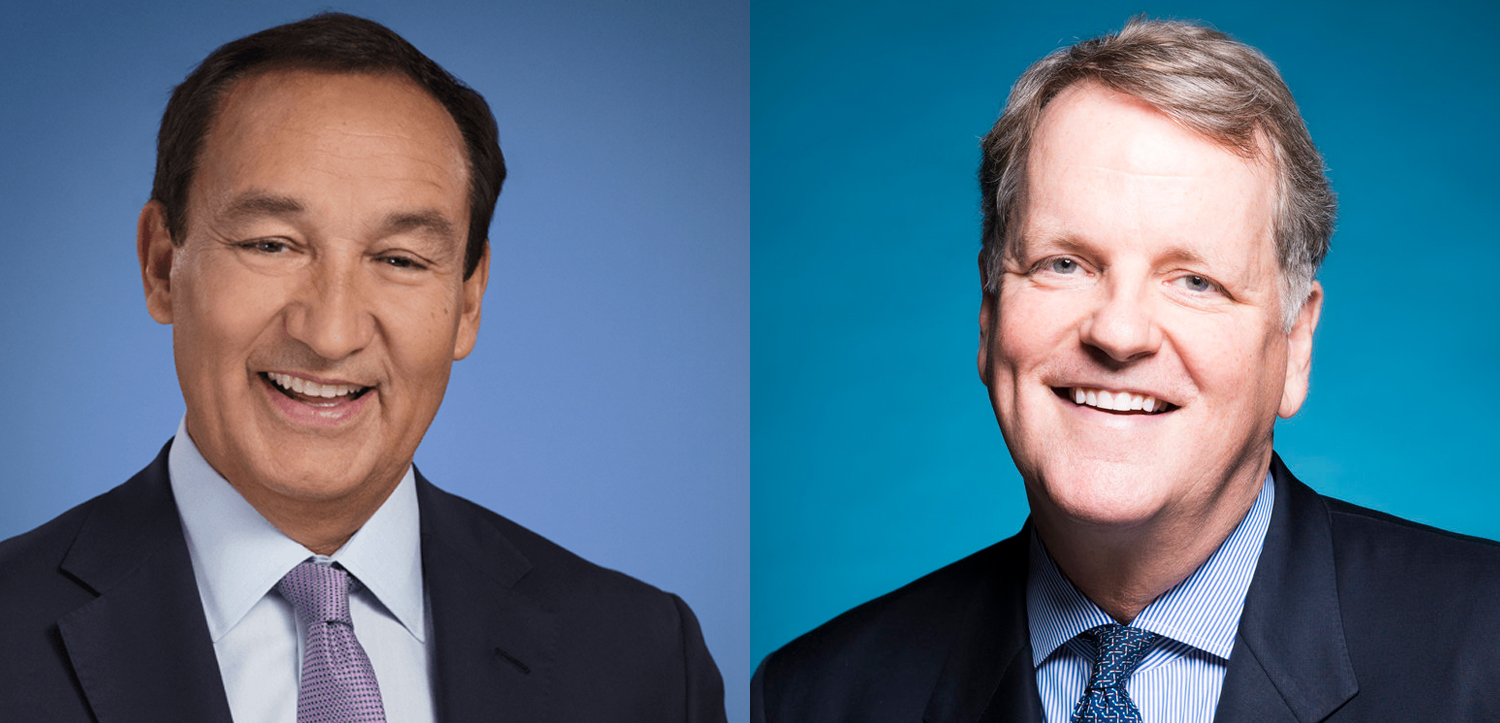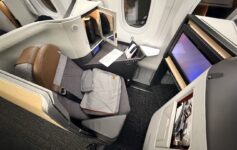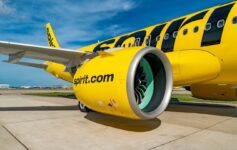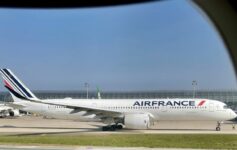As the public faces of their respective airlines, United CEO Oscar Munoz and American Airlines CEO Doug Parker share a common problem: how to convince customers to fly on the 737 MAX again. Thus far, the two have taken different approaches.
Transparency + Empathy From Oscar Munoz
Munoz has labored to put customers at ease, noting that public trust must rebuilt:
Just because somebody says it’s safe, you as the flying public aren’t just going to get on the aircraft.
Perhaps this is an exercise in reverse psychology, but by focusing on the subjective opinions of the public, he is able to divert attention off the more difficult subjective question of whether the 737 MAX is actually airworthy.
But Munoz goes beyond even that. He has promised to be on the first flight and personally promised that no one who is uncomfortable will be forced to fly on the 737 MAX or lose the value of their ticket:
I pledge to be on our first flight, which may not sound like much to a lot of people. It’s important for us, not just because a regulatory agency, a manufacturer, or an airline says its safe. I think it’s important that as part of my ‘proof not promise’ mantra, that I be on the first flight
More importantly, we are going to make it incredibly transparent for our customers to know that when they book a flight if it is indeed on a MAX aircraft, they will absolutely know.
“If for some reason, if they get closer to their flight, and they are determined that they don’t feel comfortable, or safe, we will absolutely rebook them at no extra cost. It is that important to us that we don’t just assume that everybody is going to just jump back on that aircraft.
This statement was made earlier to day in the United Kingdom, as reported by Simple Flying. Munoz made a similar statement at the recent media day in Chicago last month.
Whenever he is asked about when the aircraft will return, he only emphasizes safety:
I think at this point we would have 80 to 100 flights that would be in the air. But, again, it’s just — the important part about that conversation is that aircraft will return safely. And that’s all we really care about. So, we await the FAA and the regulators to do their thing.
Unbridled Confidence From Doug Parker
Parker’s message has been focused less on customers and more toward Boeing and regulators.
Unlike Munoz, Parker has not frequently empathized with worries passengers may have about the 737 MAX. Rather, he has operated on the assumption that the 737 MAX is safe, always has been safe, and that American Airlines would not have ever operated it if it was not.
American has, as an unpublished policy, promised to re-accommodate uncomfortable passengers. A spokesperson told me:
We will take care of customers who are not comfortable flying on the Max. We will rebook them. The airline won’t charge those passengers the standard $200 fee for changing a ticket.
But Parker’s focus has been on the process. For example, he told employees that politics were at play in the re-certification process:
There is an absolute software fix that’s this close to being certified, but they’ve been saying that for a while. I think as much as anything now it may be politics as much as the true certification … safety issue. I don’t think the FAA wants to be alone in doing this.
And unlike Munoz, who has chosen not to directly confront Boeing publicly, Parker recently criticized Boeing for taking too long in a New York Times interview this week:
The F.A.A. has been very forceful in saying, “We will decide whether or not it’s safe.” They’ve been adamant about that, which I think is exactly the right stance to take. They have set certain conditions to make that assessment. Boeing doesn’t appear to be meeting the F.A.A.’s deadlines.
It’s not the F.A.A. changing the condition. It’s the manufacturer either setting too aggressive a view as to when they will have the conditions met, or not being able to deliver what they said they were going to deliver. Whatever the result, the F.A.A. is not changing their requests, but the aircraft still continues to slip in certification.
The implication is that this is a routine repair, not a monumental problem. In fact, he stressed that even after the Lion Air and Ethiopian crashes, he never had any safety concerns “whatsoever” with the 737 MAX:
Absolutely. If we thought for a second that our airplanes with our pilots were unsafe, we would have grounded them ourselves. If we had any concerns whatsoever, if any of our pilots had any concerns whatsoever, I assure you they wouldn’t take the aircraft up.
He is also confident that Boeing will compensate American Airlines for the long delay:
They are early talks, even though it’s been going on a long time, primarily because you can’t assess the damages until you know how long the delays last. It’s not over. There’s nothing contentious about the talks, but also nothing is really progressing. I think we’ve gotten to the point where we need to get into more detail. What I feel very strongly about is that American Airlines customers and team members and shareholders have borne the pain of this, and that it should be Boeing’s shareholders that pay for it, not ours.
CONCLUSION
I don’t think I am cherry picking when I note that Munoz and Parker have taken different approaches to the 737 MAX. I’m not sure, actually, if one is better than the other. But both do share the same goal: getting the 737 MAX back in the air as soon as possible with confident pilots, flight attendants, and customers.





Could care less what either of them say. I will never put my daughter on that plane. Period.
100% agree. But someone’s Not Listening!!!
You say you could care less, meaning you care a lot what they say? Did you mean instead that you ‘could’NT’ care less?
Actually, I could care less what you say, lol
After 30 years an airline crew member I never thought I’d be boycotting a Boeing aircraft. ( I worked aboard the 727, 747 and 757.) But I will not fly the 737 MAX.
This decision will cause me a lot of inconvenience. My local airport in Beziers, France, is served by one airline only: Ryanair, which is amassing a large MAX fleet. Avoiding them will mean driving two extra hours to Montpellier Airport, as well as missing-out on Ryanair’s incredibly low fares.
My other home is in Nova Scotia. Flights from Halifax to Europe on both Air Canada and Westjet will utilize the MAX, exclusively. So when traveling to France I will need to first fly two hours west – to either Montreal or Toronto – before reversing course and flying east on widebodies operated by Air Canada or Air France.
Avoiding the 737 MAX will be an expensive hassle. But I’ll have to suck it up, because I just don’t trust that plane. (Or Boeing, or the FAA at this point.)
Like many others who consider themselves fortunate to have flown on the Max8 without experiencing a problem I will not fly in one again. Boeing put my family at risk knowing the issues this plane had with its MCAS system but profit was more important than safety. Why choose to fly in a plane that has to have a computer system installed to compensate for an inherently aerodynamically unstable design. Redesign the plane then I will think about flying on it.
They can talk what they want, I will not fly 737 Max.
The plane is unsafe because of a design flaw and will remain unsafe because of a design flaw, regardless of the software that Boeing intends to stick in it.
Anyway it is unlikely the thing gets recertified maybe with the exception of FAA.
Another form of Boeing campaign? How much did they paid you, really? Or is it the national pride and helping the economy thing?
I’m not sure how this post helps Boeing…?
Planting a doubt on your readers regarding Boeing’s 737Max
I was surprised Mr Parker publicly hit out at Boeing. I suspect they know that they will need to settle with AA and the other carriers. I don’t see a negotiation advantage by Mr Parker beating them up in public or negotiating in public. However I’m not an attorney and there are several attorneys who read this blog along with you Matthew.
To me what the airlines should do is give Boeing space to fix it and negotiate once everything is flying.
Munoz is such a standup guy.
They’re both crooks to the highest degree, but at least Munoz puts on the act of caring about the little guy.
Why would anyone not fly on the 737 Max? If the problems are fixed, the FAA fully certifies it to fly and the pilots at the airlines say they will fly it, and airline mechanics say it is good to go, I would certainly get on the aircraft. Boeing made hugh mistakes they admitted this. It is sad so many people died and Boeing will pay dearly for this. However, we have to move forward for the future.
Remember, though…the FAA certified it to fly once before, too. I’m not sure I hold them or Boeing in any sort of confidence now. Leaving it to companies to essentially self-certify, coupled with the incestuous nature of regulators/regulatees in upper management, instills a great deal of doubt in me.
The Max is fundamentally flawed and MCAS is a hack. Shoehorning huge engines on a 50+ year old frame designed for cigar-tube JT8Ds was their fatal error vs a clean sheet.
It was always about maximizing profit. Which is fine! Except when it overrides sound engineering decisions which we’ve already seen in Boeing’s documents and leaked text messages. The plane is inherently unstable and any plane that requires sketchily-coded software to keep it from falling out of the sky should never have been allowed to market in the first place. FAA is as much at fault as Boeing.
I will never fly on a Max and neither should you. They should all be scrapped.
First World airline pilots would never have crashed the plane and First World airlines would never have allowed those aircraft anywhere near passengers until the issues about the angle of attack sensors were fixed.
These planes crashed because their airlines’ cultures set up pilots who came up playing video games were way over their heads.
First World airlines had already allowed the Max to be flown by their passengers up until the groundings by governmental authorities.